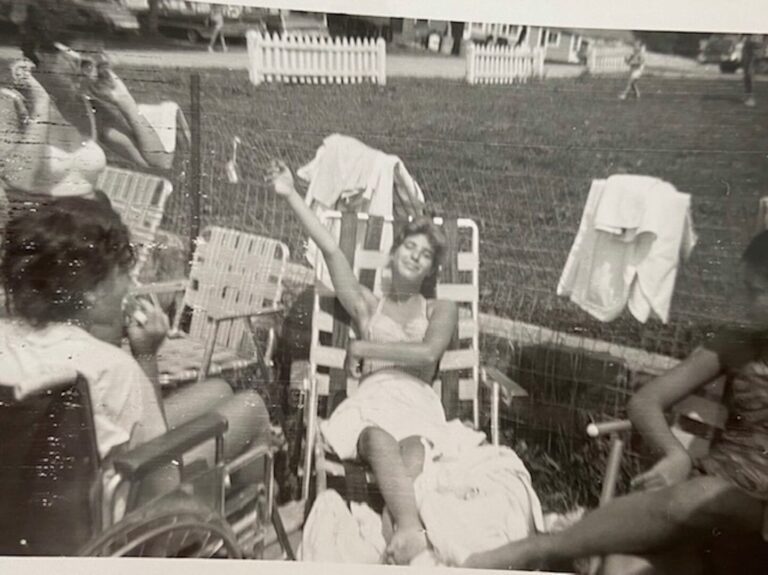This essay is a rumination on loss during the pandemic—not only the physical loss of loved ones but the loss of experiences and time. Focusing specifically on the death of my aunt, Joyce Dana Apostole, I reflect on what it means to mourn, not only as an individual but as a collective. Through the retelling of significant moments in Joyce’s life and recalling our relationship, I consider the questions: How do you navigate grief when you cannot congregate with others? How is that grief compounded by institutional failures—medical, governmental—and informational lack? And how does social response to individual and mass loss reflect philosophies and policies that (continue to) devalue—and prove detrimental to—the lives of disabled people? Ultimately, this essay is not only a reflection on grief, but it is also a eulogy, an opportunity to fully recognize my aunt and her complex history, a life shaped by illness and disability in ways that counter popular narratives of recovery and overcoming. It is an archive of not only what was, but what wasn’t, necessary documentation within a culture in which “return to normalcy” can become synonymous with forgetting.
